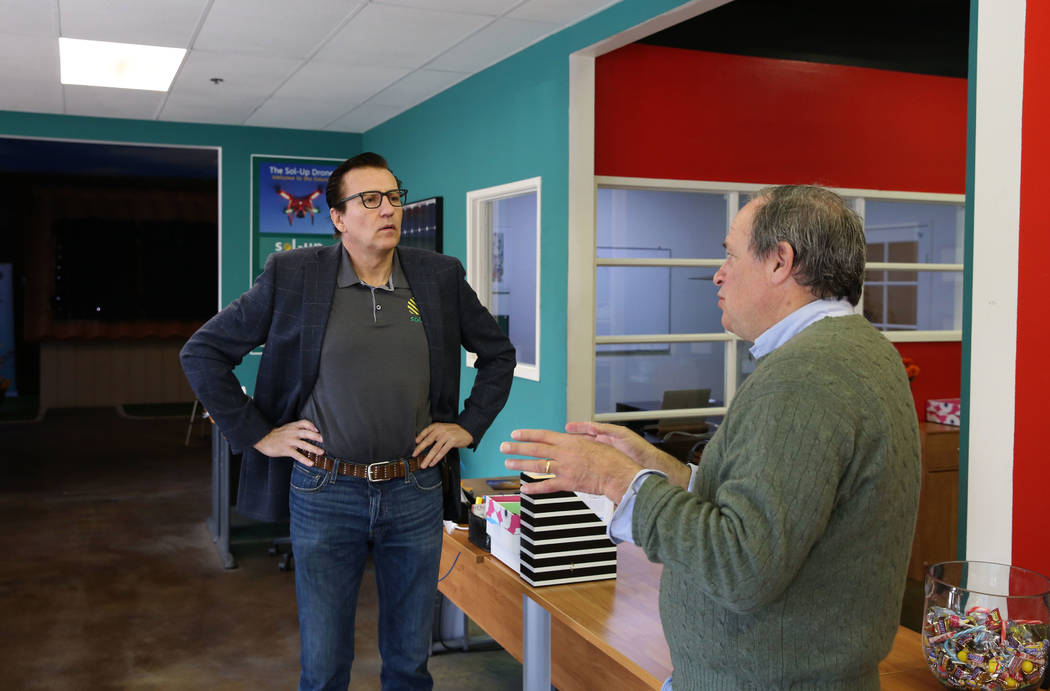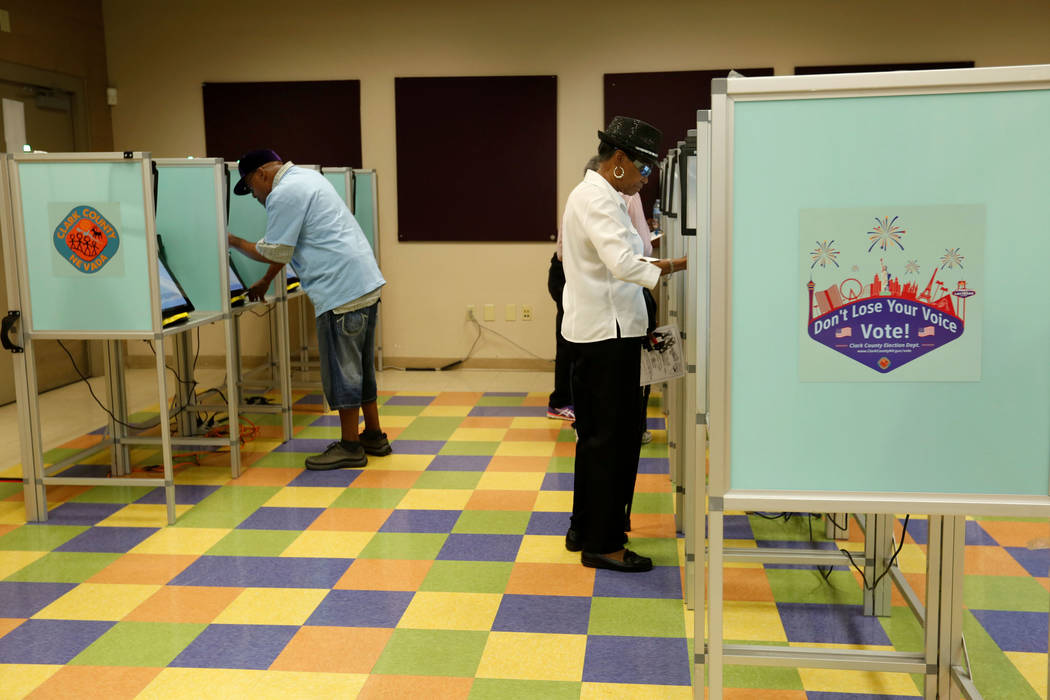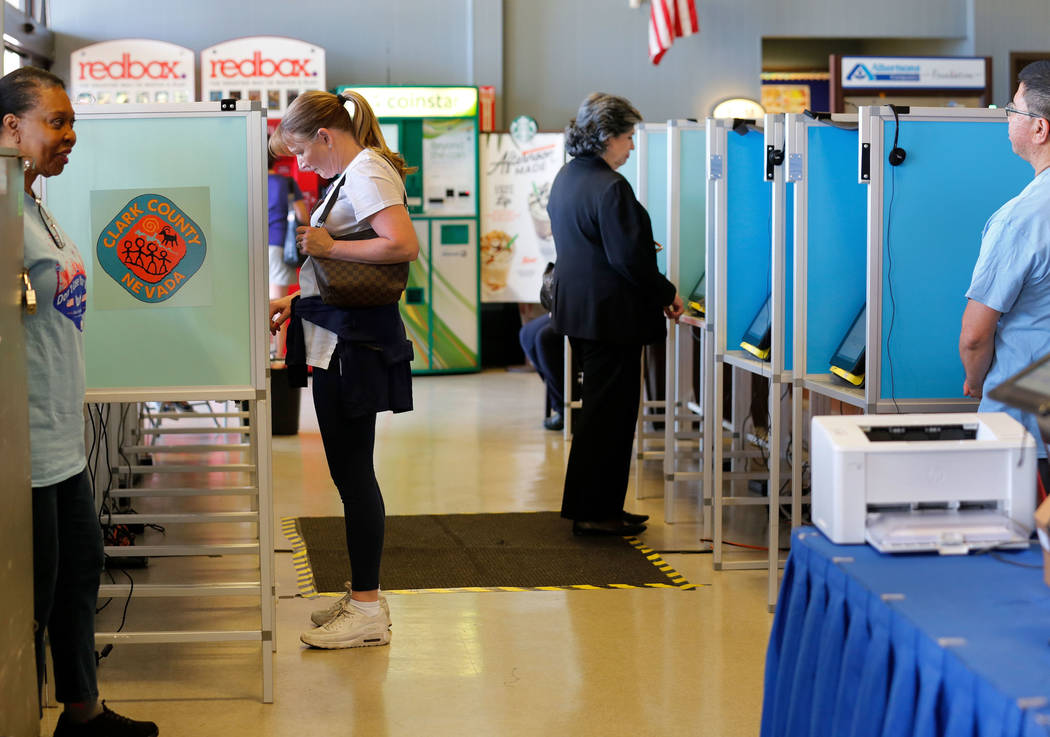Nevada companies required to give requested PTO for voting



Local business owner Frank Rieger tries to be flexible with his employees’ schedules on Election Day.
The founder of solar installation company Sol-Up USA said he encourages his staff to vote and would be willing to give paid time off if asked. So far, no one has.
“I think it’s the highest civic duty to go to elections,” he said. “I feel it’s a very important election.”
Many states, including Nevada, require companies to offer employees paid time off to vote on Election Day. But a recent national survey of 150 human resources executives found that a majority of employees don’t ask for paid time off to vote.
Nevada companies aren’t required by state law to shut down on Election Day, but they are required to give one to three hours of paid time off, depending on the distance between the place of work and a polling location.
Chicago-based executive coaching firm Challenger, Gray & Christmas found that 61.8 percent of employers didn’t see an increase in time off requests for voting or follow coverage for this year’s midterm elections.
The Nevada secretary of state’s office reported that as of Monday morning, more than 628,000 residents, or 40.3 percent of active voters in the state, had already cast a ballot through early voting, absentee voting or mail-in voting. Turnout has already surpassed the more than 552,000 ballots cast in the 2014 general election.
A majority of employees in this survey declined to ask for time off on Election Day, but the numbers are growing. About 21 percent of those surveyed said they had seen more time-off requests for this Election Day than in previous years.
Shane Terry, CEO of Las Vegas-based cannabis company TapRoot Holdings, said a majority of his 13 employees have requested time off for this election.
“People are a little bit more engaged in this election,” he said.
Andrew Challenger, vice president of Challenger, Gray & Christmas, said a national holiday on Election Day is one solution that could save businesses money.
“In some ways, the cost of making Election Day a holiday is lowered by the fact that there’s so much lost productivity happening anyway,” he said.
Sol-Up’s Rieger said he would support an Election Day holiday.
“It’s a great idea, especially here in the United States for these low (voter turnout) numbers,” he said. “It really helps people go out and vote. Otherwise, they have restrictions. … They have to work; they have children.”
But it could also be a challenge for small-business owners, said Cara Clarke, the associate vice president of communications at the Las Vegas Metro Chamber of Commerce.
“You’re so dependent on your workers to be there,” she said.
With options like early voting, absentee ballots and mail-in ballots, Clarke said, a national holiday would be costly and is unlikely to dramatically increase voter turnout.
“Our elections are no longer just one day,” Clarke said. “I don’t know if we need a special holiday to achieve (a higher-turnout) goal.”
Kim Jacobs, owner of two Great Harvest bread store franchises in Henderson, said she has about 30 employees, many of whom are high school students working part time. She doesn’t believe that making Election Day a national holiday will make much of a difference in voter turnout.
“I think the people that are going to vote will vote one way or another,” she said. “The ones who aren’t will (use the holiday to) go to the beach. … I think it should be the employer’s responsibility to accommodate for people.”
Contact Bailey Schulz at bschulz@reviewjournal.com or 702-383-0233. Follow @bailey_schulz on Twitter.
Distracted working
For businesses with employees closely following election coverage, distracted work can add up in lost productivity.
“That’s a strong indicator that this midterm election is different than elections in the past,” said Andrew Challenger, vice president of Chicago-based executive coaching firm Challenger, Gray & Christmas, which conducted the survey. “Both sides of the political landscape are really energized. … There’s going to be a lot of focus on employees taking off time from work to make sure they vote and following coverage of midterm vote throughout the day.”
Employees distracted by the election Tuesday could cost U.S. companies $3.5 billion combined per hour in lost productivity, according to the survey.
“The costs of the election in terms of lost productivity have really risen now that everyone has computers and tablets and smartphones in their pockets and they’re glued to coverage all day long,” Challenger said.
And employee attention may be harder to keep in this election, Challenger said.












